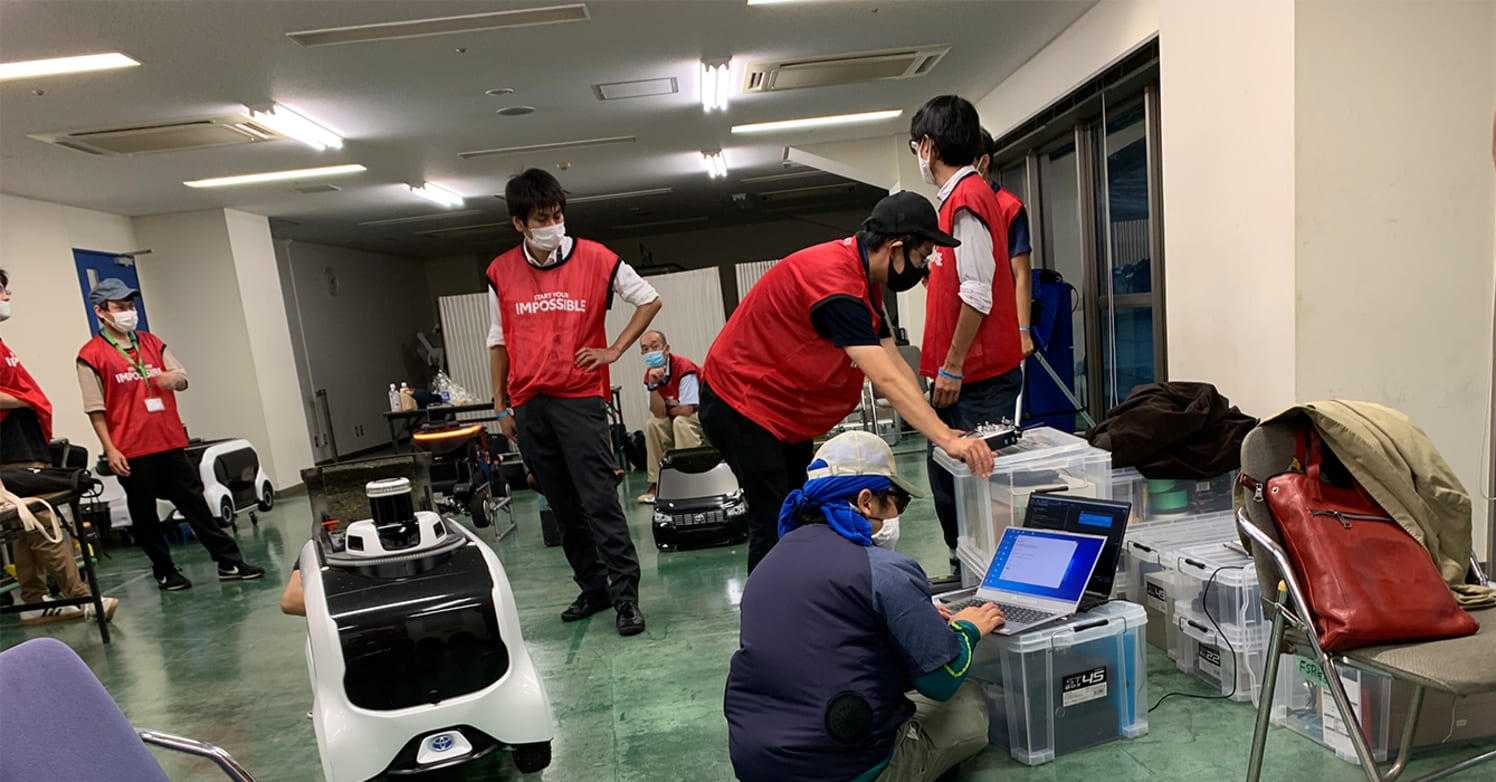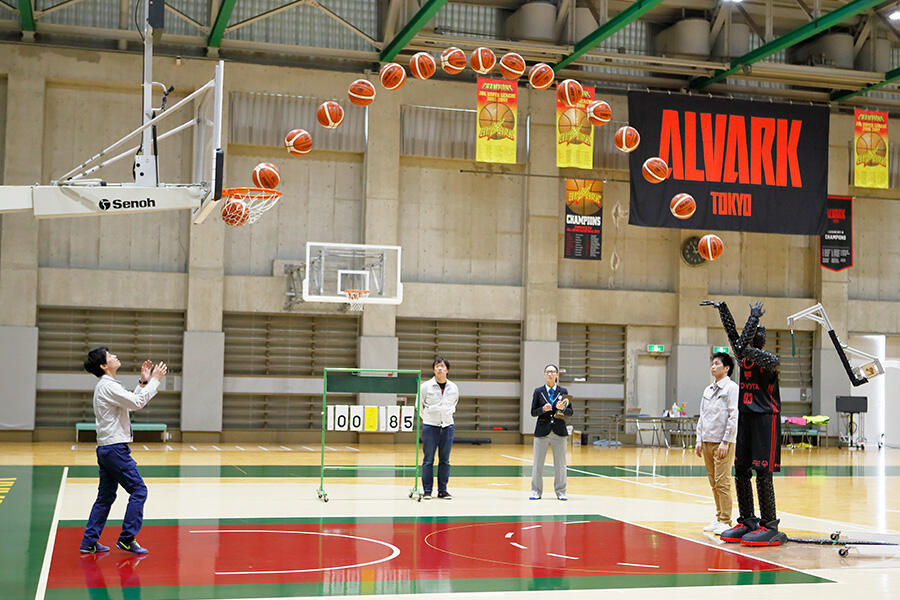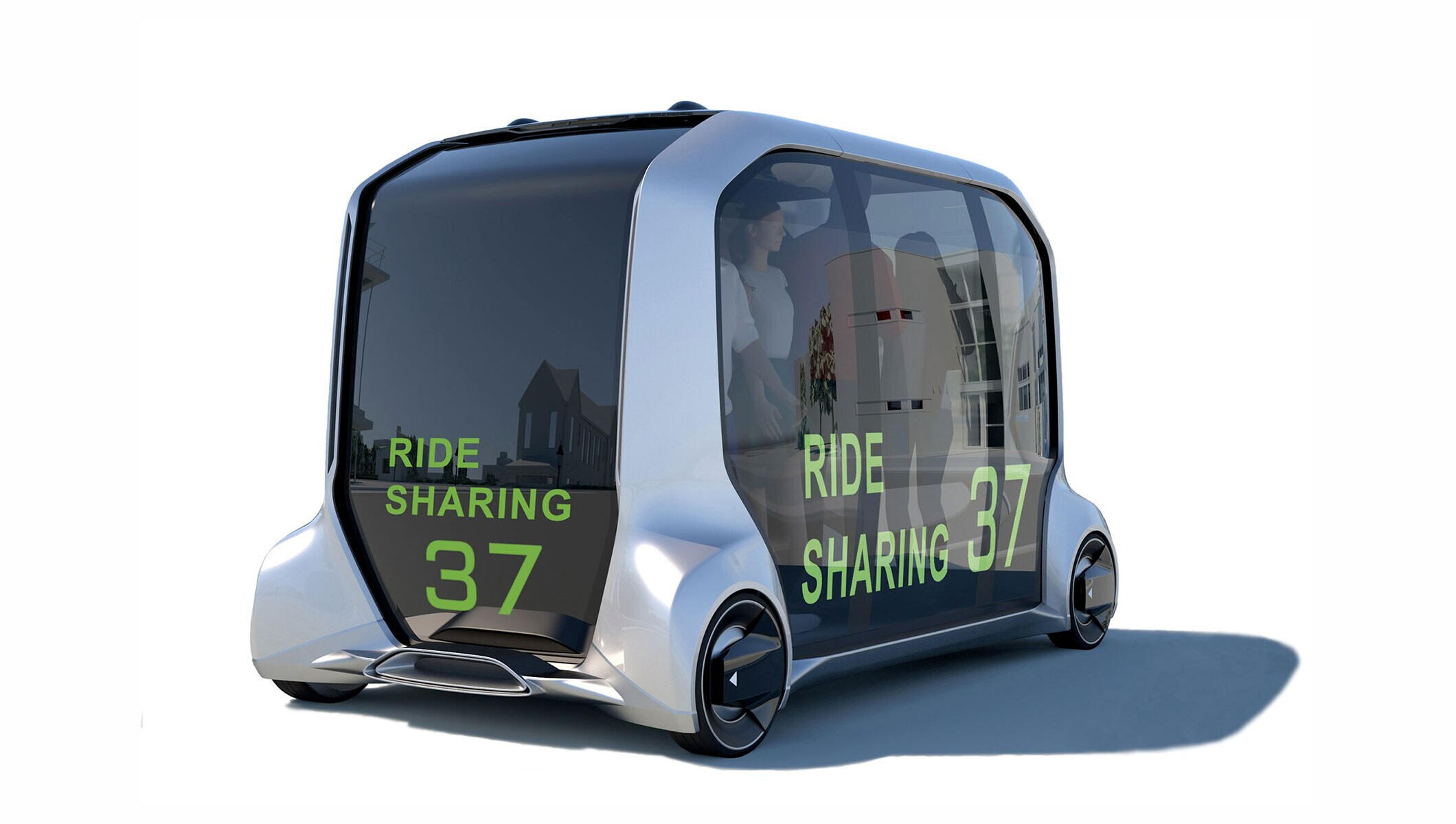Aside from premier athletic competition, the quadrennial event is also showcasing a number of cutting-edge technologies, carrying on a tradition of Olympic innovation.

Image: Toyota
After being delayed due to the coronavirus pandemic, the 2020 Olympics schedule is in full swing, albeit without spectators in the stands. Aside from featuring top athletic competition from nations around the globe, the quadrennial event is also showcasing several cutting-edge innovations ranging from robotics and artificial intelligence to virtual reality training solutions, carrying on a tradition of Olympic tech innovation history.
"The Olympic Games have always been a catalyst and showcase for innovation, and when Tokyo last hosted the event, in 1964, it saw satellites used to relay live pictures to a global audience for the first time, as well as the debuts of close-pickup microphones and slow-motion replays," reads a portion of an Olympic blog post.
SEE: COVID vaccination policy (TechRepublic Premium)
2020 Olympics: Bots support officials on the ground
Historically, human beings have traditionally located, chased down and seized game balls during Olympic competitions. But at the 2020 games, spectators may catch a glimpse of a few bots retrieving these spheres and other equipment during gameplay. This year, Toyota has developed a series of "Field Support Robots" (FSR) designed to "retrieve sports equipment quickly and safely on the field of play, alleviating the burden on operational staff," according to the Olympics post.
But these devices can fetch and retrieve more than the standard spherical sports balls. According to an Olympics post published in March, these autonomous craft can help "retrieve the discus or javelin in throwing events" and "carry the rugby ball to the [center] of the field before kick-off."
The bots boast a top speed of 20 kilometers per hour (12.4 mph) and have an AI-enabled camera to detect humans and a separate sensor "uses light reflected from a laser beam to calculate the distance and angle between an obstacle."

Image: Olympics
Olympic basketball bots
Toyota's AI-powered humanoid basketball player, CUE, may not be a household name, but the robot is a hardwood legend in its own right. In 2019, the robot made history when it netted the Guinness World Record for "most consecutive basketball free throws by a humanoid robot (assisted)," according to Toyota.

Image: Toyota
Originally, the team set their desired consecutive shot goal at 2,020 shots "in support of the Tokyo 2020 Olympic and Paralympic Games," and the robot reached this milestone mark after hooping for more than six hours and half hours. During the 2020 Olympics, the bot was seen showing its skills at the free-throw line; a made free throw just before a commercial break even garnered a "boom shakalaka" from one of the Olympic commentators.
— #TokyoOlympics (@NBCOlympics) July 25, 2021
Autonomous electric shuttles
The 2020 Olympics have also featured a number of autonomous vehicles designed to chauffeur athletes around the Olympic village. Originally, Toyota planned to deploy about 200 electric vehicles known as Accessible People Mover (APM) to "transport athletes, staff and visitors with accessibility needs around venues." Each of the electric APMs has a single-charge range of 100 kilometers and can ferry up to five passengers.

Image: Toyota
SEE: Wellness at work: How to support your team's mental health (free PDF) (TechRepublic)
VR Olympic training
In collaboration with the International Olympic Committee, Intel has designed a virtual reality Olympic training platform to "provide an immersive learning experience for key managers at competition venues" that creates "a realistic experience and providing accurate individual feedback" to enhance training, according to an Olympics post. Overall, the system features digital twins of Olympic competition areas.
"This pilot initiative, tested for the first time in Tokyo, will help make operational training at future Games more efficient and cost-effective," the post said.
Facial recognition boosts security
The 2020 Olympics also include facial recognition capabilities to enhance security at competition spaces. An initiative involving Panasonic, Atos and NEC uses facial recognition to "identify accredited athletes, volunteers, media and officials at each security checkpoint," according to the Olympics post, adding that this tech will "play a key role as part of Tokyo 2020's COVID-19 countermeasures."

Data, Analytics and AI Newsletter
Learn the latest news and best practices about data science, big data analytics, and artificial intelligence. Delivered Mondays
Sign up todayAlso see
- Photos: Best robots at CES 2021 (TechRepublic)
- Snowflake data warehouse platform: A cheat sheet (free PDF) (TechRepublic)
- Research: How to successfully navigate the technical and management challenges of a remote workforce (TechRepublic Premium)
- What is digital transformation? Everything you need to know about how technology is reshaping business (ZDNet)
- Digital transformation: More must-read coverage (TechRepublic on Flipboard)







 English (US) ·
English (US) ·